
Smart Mobility Academy in North-West Romania
Smart Mobility Academy in North-West Romania
EMOBICITY seeks to improve low-carbon economy policies, so as to facilitate the take up of electric mobility at a national and regional level.
€1,071,804.00
Low-carbon economy
EMOBICITY aims to strengthen the capacities of all key-stakeholders on e-mobility, especially regarding policy making, through workshops, study visits and peer reviews, as well as to raise public awareness by open campaigns and other communication activities. EMOBICITY will support policy learning on e-mobility at a national and regional level, by the increase of knowledge and exchange of experience, between the project partners, policy and decision makers and other project stakeholders from the EU participating countries. For this reason, the project will provide workshops, study visits and other activities, bringing together all key players for discussions and brainstorming, highlighting relative good practices. By this way, EMOBICITY will generate high leverage and provide action plans for the improvement of the policy instruments addressed by the partnership, proposing enrichments and amendments, leading to increased e-mobility integration, thus contributing to a low-carbon economy. The following enhancements and innovations are proposed to be examined during the project, to be included in policy instruments:
The National Energy Efficiency Action Plan (NEEAP) sets out estimated energy consumption, planned energy efficiency measures and the improvements that EU countries expect to achieve. The NEEAP in the framework of Directive 2012/27/EU for Greece spans the previous Directive 2006/32/EC on energy end-use efficiency and energy services, and the new Directive 2012/27/EU on energy efficiency. Specifically, the NEEAP includes the Measure 12: Introduction of electric vehicles and electric vehicle recharging points. The objective of this measure is the promotion of the purchase and use of electric vehicles (cars, motorcycles, bicycles and heavy vehicles) and construction of vehicle charging points. The measure involves the provision of favourable tax incentives and subsidies for the purchase of electric vehicles (EVs) of any type for both private and public agencies operating vehicle fleets. In addition, the measure includes a subsidy for the construction of public and private vehicle charging points, powered mainly by RES.
At present, the number of EVs and charging stations remains very limited in Greece, compared to other EU countries. In order to increase the share of e-mobility at a national level, the lack of specialised legislative framework regarding the cost and pricing of electricity used for charging EVs, the licencing procedures for the public sector, as well as the lack of business initiatives regarding public charging infrastructures should be tackled.
The Republic of Croatia has adopted the Act on the Establishment of an Alternative Fuel Infrastructure, based on which the National Policy Framework for establishment of infrastructure and development of alternative fuels market in transport was subsequently adopted. The purpose of the policy framework is to define national individual and aggregate targets for setting up infrastructure for electric vehicles, with determination of settlements, construction areas, urban / suburban agglomerations, other densely populated areas and networks that will, according to the market needs, be equipped with publicly available places for the supply of electric vehicles, and to define the measures needed to achieve national individual and aggregate targets, including measures to promote the deployment of infrastructure for electric vehicles within the public transport service. The document provides for a basic description of the measures, and the detailed development of the measures is envisaged on a three-year basis through the National Energy Action Plan for Energy Efficiency. Considering the accelerated development of comprehensive e-mobility, one needs to consider the current situation, with particular emphasis on urban agglomerations in order to propose new innovative and sustainable measures at the roof level so that they could later be included in national action plans and appropriately co-financed, all in order to timely reduce emissions in urban areas.
The measures of Investment priority 4e: "Encouragement of strategies for the reduction of CO2-emissions in all areas, including the funding of sustainable multimodal inner city mobility and adaptation measures relevant for climate protection" under Axis 4: "Funding Program of the state of Hesse to support sustainable city development" should be an important contribution to the action of Hessian ERDF strategy for sustainability and reduction of CO2 emissions.
Electric vehicles (EVs) are based on new technologies; because of still high production costs for Batteries, they are still more expensive than conventional vehicles. To rise the attractiveness of the use of EVs, the Hesse state government is promoting measures in a technology-open approach which aims at proofing everyday-usability. Core topics are to increase the number of battery-EVs in fleets and the necessary charging infrastructure. Putting that into a systemic approach, the focus of the program is on the measures interoperability with other transport infrastructure, integration into sustainable multimodal mobility concepts on site, testing of business models and incentive mechanisms, as well as overall user-friendly simple and non-discriminatory solutions. As Hesse is one of the most important sites for contract logistics in Europe and several cities face congestion and air purity problems, the policy needs to be further developed regarding the topics inner city logistics and EVs of the classes N1, N2 and N3.
Azores 2020 Operational Program (Programa Operacional Açores 2020) is a program financed by the structural funds ERDF and ESF, for implementation during the 2014-2020 period in the Autonomous Region of the Azores. The program’s strategy embodies the Azorean ambition to become a relevant European region through 4 main action axes:
- An innovative use of endogenous resources, with an economic production level that surpasses the constraints of a limited local market through exports, allowing for a dynamic, integrated and diversified economy;
- A relevant actor in the flow of people and goods, in the context of a logistics hub between Europe and America, minimizing its ultraperipheral and geographically scattered condition;
- An inclusive and balanced society that promotes citizens' participation, life-long learning, access to jobs and personal fulfillment;
- A distinctive landscape, ambience and existence, supported by high-quality urban spaces, within a unique and internationally recognized natural and cultural heritage that protects biodiversity, ecosystems, and fights climate change.
The program should be improved to better integrate the different policy and regional planning instruments namely the Azorean Energy Strategy for 2030 as well as the Regional Action Plans for Climate Change, Electric Mobility, Energy Efficiency, among others. All these policy instruments point out the need for increased electric mobility, thus aiming to low-carbon transport and economy.
The policy instrument addressed covers urban areas with beneficiaries being local public authorities.
Three action domains are targeted by priority axis 4 - Investment priority 4.1: investments to improve urban public transport (i.e. purchase of EV); investments for electric and non-motorized transport (i.e. set up of electric transport infrastructure; other investments to reduce CO2 emissions in urban areas).
As e-mobility is in Romania at the beginning of integration, local authorities do not have real capacity and experience to elaborate strong project proposals in order to successfully apply for funding through the policy instrument. This policy instrument requires that the e-mobility intended measures to be well integrated into a comprehensive urban development strategy; consequently, local authorities need knowledge about good practice cases related to implemented e-mobility measures and learn through sharing experience with peers in the EU. Through well-tailored learning processes, local authorities should build capacity to apply for funding through the policy instrument with high quality and sustainable projects in order to lead to a substantial contribution to the reduction of CO2 emissions at local level.

Smart Mobility Academy in North-West Romania

First MOVE+ fleet certification was awarded by ADENE to Lisbon City Council

EMOBICITY participates in the Electric Mobility Forum in Lisbon
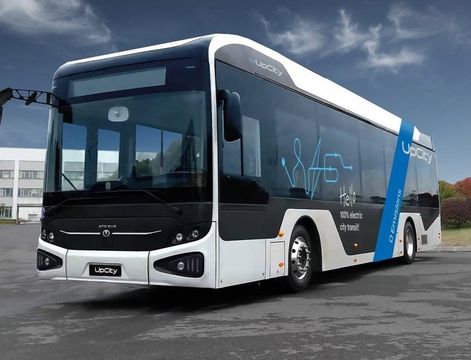
EMOBICITY – NEWS FROM THE E-MOBILITY DEPLOYMENT OF PUBLIC TRANSPORT IN ROMANIA

The Government of the Azores held an online session about the incentives system for the acquisition of electric vehicles
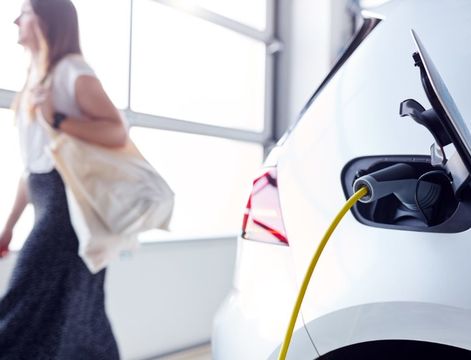
The Portuguese Environmental Fund was created to support environmental policies in pursuit of the objectives of sustainable development by contributing to the a...
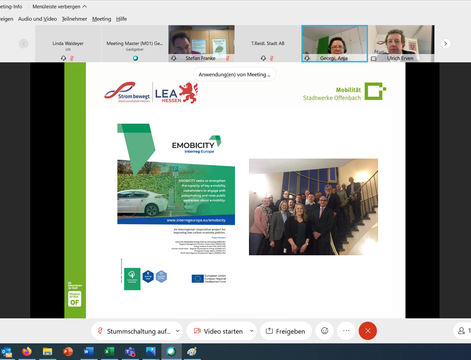
EMOBICITY at the 2nd National Electromobility Project Manager Meeting of Germany
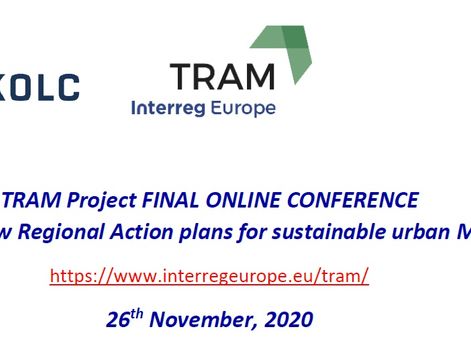
EMOBICITY was presented in the final online conference of the Interreg Europe project: TRAM

EMOBICITY joined forces with other Interreg e-mobility projects for a brainstorming workshop under the EU Regions Week 2020
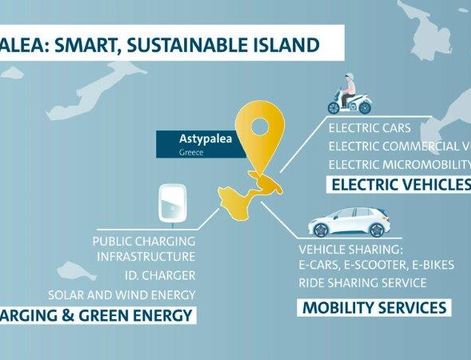
The Greek government and the Volkswagen Group have agreed to establish a groundbreaking mobility system on Astypalea island.